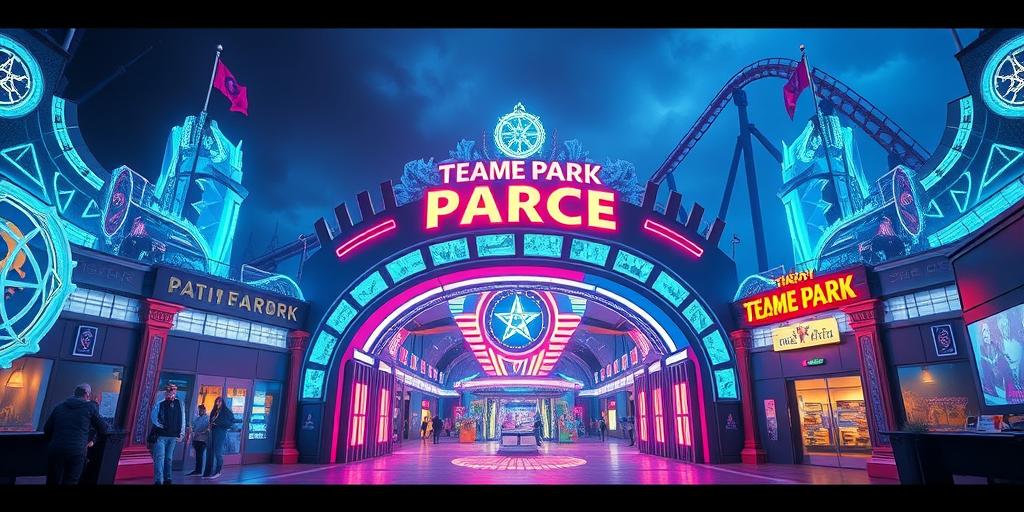The Future of Theme Parks and Attractions (2025)
The theme park industry is constantly evolving, driven by technological advancements, changing consumer preferences, and a desire for immersive experiences. As we look ahead to 2025, several key trends are poised to reshape the landscape of theme parks and attractions. This post explores these trends, offering insights into what visitors can expect in the near future.
1. Enhanced Immersive Experiences
Technology is playing a crucial role in creating more immersive and engaging experiences. Expect to see greater integration of:
- Virtual Reality (VR) and Augmented Reality (AR): VR and AR technologies will be increasingly used to enhance rides, shows, and interactive exhibits. Imagine experiencing a roller coaster that combines physical thrills with a virtual environment, or using AR to bring historical figures to life in a museum setting.
- Projection Mapping: Advanced projection mapping techniques will transform physical spaces, creating dynamic and visually stunning environments. This technology can be used to overlay intricate designs and animations onto buildings, landscapes, and even water features.
- Holographic Entertainment: Holograms will become more sophisticated, offering lifelike interactions with characters and performers. This technology can be used to create holographic concerts, theatrical performances, and interactive storytelling experiences.
2. Personalized and Customizable Adventures
Theme parks are recognizing the importance of personalization. In 2025, expect to see more:
- Customizable Ride Experiences: Technologies that allow guests to tailor their ride experience based on their preferences. This could include adjusting the intensity of a simulator ride or choosing different narrative paths within an interactive attraction.
- AI-Driven Personalization: Artificial intelligence (AI) will play a significant role in curating personalized experiences. AI algorithms can analyze guest data to recommend attractions, shows, and dining options that align with their interests.
- Interactive Storytelling: Guests will have more opportunities to participate in the narrative. This could involve solving puzzles, making choices that affect the storyline, or interacting with live performers in immersive theatrical experiences.
3. Sustainable and Eco-Friendly Practices
Sustainability is becoming a major priority for the theme park industry. Expect to see:
- Renewable Energy Sources: Theme parks are increasingly investing in renewable energy sources, such as solar and wind power, to reduce their carbon footprint.
- Waste Reduction Programs: Comprehensive waste reduction programs, including recycling and composting initiatives, will become standard practice.
- Conservation Efforts: Theme parks will continue to support conservation efforts and educate guests about environmental issues.
4. Seamless Integration of Technology
Technology will be seamlessly integrated into every aspect of the visitor experience:
- Mobile Ticketing and Navigation: Mobile apps will be used for ticketing, park navigation, wait time tracking, and mobile ordering.
- Smart Park Systems: Integrated systems that use data analytics to optimize park operations, improve guest flow, and reduce wait times.
- Biometric Identification: Biometric identification systems will streamline entry processes and enable personalized services throughout the park.
5. Rise of the ‘Mini-Park’ Concept
Smaller, more localized theme park concepts are gaining popularity. These “mini-parks” offer:
- Targeted Experiences: Focusing on specific themes or demographics, such as children’s entertainment or adventure sports.
- Indoor Attractions: Indoor attractions that can operate year-round, regardless of weather conditions.
- Community Integration: Integration with local communities, offering unique cultural and entertainment experiences.
Conclusion
The future of theme parks and attractions in 2025 looks bright, with innovation driving exciting new experiences. Enhanced immersive technologies, personalized adventures, sustainable practices, seamless tech integration, and the rise of mini-parks are set to redefine the industry. As theme parks continue to evolve, they will offer visitors increasingly engaging, memorable, and sustainable experiences.
